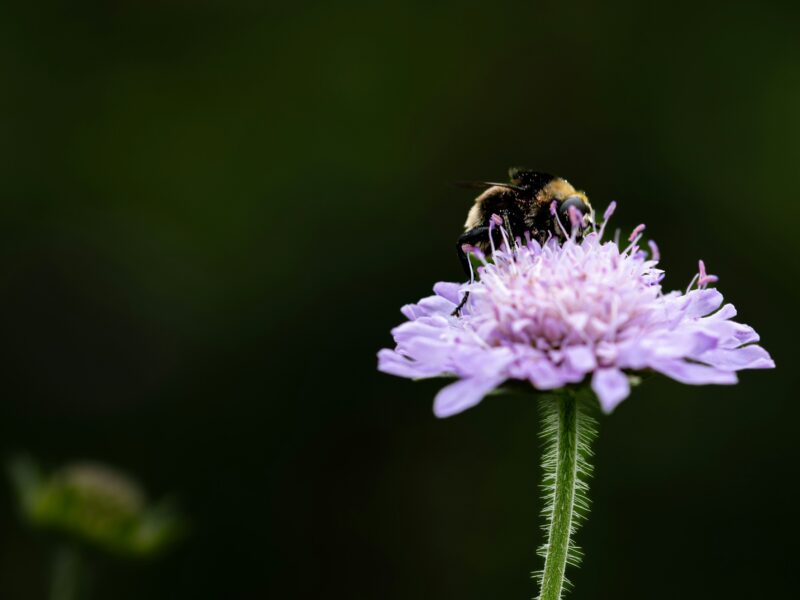As chemicals designed to kill insects and weeds, fungi and rodents, pesticides are among the most toxic and damaging substances on the planet. Their harmful impacts on human and ecosystem health are generally well understood. What receives far less attention, however, is the climate impact of these agrochemicals. Not only do pesticides directly contribute to the climate crisis, but a changing climate is likely to intensify pressure from agricultural pests and decrease plant resiliency, resulting in greater pesticide usage and therefore further greenhouse gas emissions, according to a new report. The Strengthening Organic Enforcement Final Rule is live on the Federal Register, filed unofficially by the USDA and the National Organic Program, with official publication scheduled for Jan. 19. “This has been a long time coming,” U.S. Rep. Chellie Pingree of Maine said on a call with reporters. “It’s been first major attempt to update the regulations and make sure that we’re strengthening [organic] integrity since the original act in 1990.” The new 280-page Final Rule addresses long-awaited updates sought after by farmers and organic advocates alike to bolster the credibility of the organic seal and safeguard organic integrity across global supply chains. If you are a new farmer in North Dakota, or want to try out organic farming, there is a free organic farming training session happening later this month in our state. The USDA and other agricultural leaders will be at the Organic Academy Roadshow session in Fargo on January 26 and 27. Beginning farmers and ranchers — who have only been operating for 10-years or less — will have the opportunity to explore all types of organic farming. Jeff Schahczenski, the Agricultural and Natural Resource Economist at NCAT, says, “We have one farmer who will be teaching, who runs an almost 11,000, 12,000-acre operation in Montana. Very diversified farm. So, it’s really a listening session. It’s farmers talking to farmers, and ranchers talking to ranchers.” Agriculture Secretary Russell Redding announced $1.8 million in targeted investments over three years to help Pennsylvania farmers and processors voluntarily transition to growing and producing organic products, building on momentum gained through the PA Farm Bill. “Pennsylvania is leading the way in organic agriculture, ranking third in the nation for sales of local, organic products, contributing more than $1 billion to the commonwealth’s economy,” said Secretary Redding. “Innovation and partnerships in organic are ensuring we meet the needs of consumers now and well into the future. Governor Wolf and the General Assembly’s support of the only state-based Farm Bill was instrumental in getting us to this point, and I’m looking forward to continued growth in organic.”
USDA’s new organic rule tackles fraud
The Strengthening Organic Enforcement Final Rule is live today on the Federal Register, filed unofficially by the USDA and the National Organic Program, with official publication scheduled for Jan. 19. “This has been a long time coming,” U.S. Rep. Chellie Pingree of Maine said on a call with reporters. “It’s been first major attempt to update the regulations and make sure that we’re strengthening [organic] integrity since the original act in 1990.” The new 280-page Final Rule addresses long-awaited updates sought after by farmers and organic advocates alike to bolster the credibility of the organic seal and safeguard organic integrity across global supply chains.
https://www.thepacker.com/news/organic/usdas-new-organic-rule-tackles-fraud
Going organic: How new North Dakota farmers and ranchers
If you are a new farmer in North Dakota, or want to try out organic farming, there is a free organic farming training session happening later this month in our state. The USDA and other agricultural leaders will be at the Organic Academy Roadshow session in Fargo on January 26 and 27.Beginning farmers and ranchers — who have only been operating for 10-years or less — will have the opportunity to explore all types of organic farming. Jeff Schahczenski, the Agricultural and Natural Resource Economist at NCAT, says, “We have one farmer who will be teaching, who runs an almost 11,000, 12,000-acre operation in Montana. Very diversified farm. So, it’s really a listening session. It’s farmers talking to farmers, and ranchers talking to ranchers.”
Agriculture Secretary Announces $1.8 Million to Grow Market Opportunities for Organic
Agriculture Secretary Russell Redding announced $1.8 million in targeted investments over three years to help Pennsylvania farmers and processors voluntarily transition to growing and producing organic products, building on momentum gained through the PA Farm Bill. “Pennsylvania is leading the way in organic agriculture, ranking third in the nation for sales of local, organic products, contributing more than $1 billion to the commonwealth’s economy,” said Secretary Redding. “Innovation and partnerships in organic are ensuring we meet the needs of consumers now and well into the future. Governor Wolf and the General Assembly’s support of the only state-based Farm Bill was instrumental in getting us to this point, and I’m looking forward to continued growth in organic.”
New report highlights pesticides’ overlooked climate connection
As chemicals designed to kill insects and weeds, fungi and rodents, pesticides are among the most toxic and damaging substances on the planet. Their harmful impacts on human and ecosystem health are generally well understood. What receives far less attention, however, is the climate impact of these agrochemicals. Not only do pesticides directly contribute to the climate crisis, but a changing climate is likely to intensify pressure from agricultural pests and decrease plant resiliency, resulting in greater pesticide usage and therefore further greenhouse gas emissions, according to a new report.
Bees may be at risk from commonly used weedkillers, Irish scientists find
Bees may be at risk from exposure to glyphosate – an active ingredient in some of the EU’s most commonly used weedkillers – via contaminated wildflower nectar, according to research by Irish scientists.The weedkiller is shown to contaminate plant pollen and nectar of “non-target plant species”; providing the latest evidence supporting the case for its curtailment.









